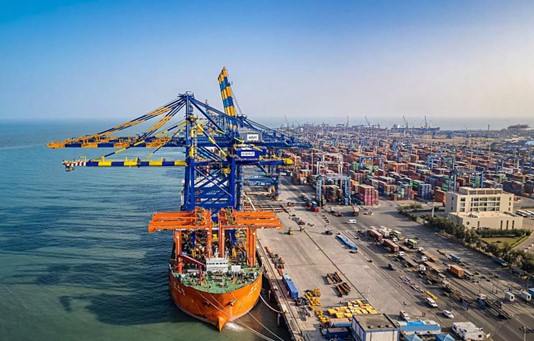India: New Container Transport Initiative Strengthens Global Maritime Position
vlimonamedia
20/02/2025
India has announced a multi-faceted maritime initiative aimed at boosting trade and expanding the country’s maritime commerce reach.

As part of the initiative, the launch of a new shipping carrier, Bharat Container Line, is expected to reduce India’s reliance on foreign shipping companies. A fleet of 100 vessels will operate along key trade routes, as outlined in reports released by the authorities.
Meanwhile, the world’s largest container shipping company, MSC (Mediterranean Shipping Co.), currently operates nearly 900 vessels.
According to data compiled by Alphaliner, India’s national carrier, Shipping Corp of India (SCI), operates only four container ships, including two owned and two chartered vessels. Indian Prime Minister Narendra Modi recently visited the headquarters of the shipping giant CMA CGM in Marseille, alongside French President Emmanuel Macron, to discuss logistics cooperation.
“With the India-Middle East-Europe Economic Corridor (IMEC), a visionary initiative led by Prime Minister Narendra Modi, Marseille will play a strategic role as a key hub for India-Mediterranean trade,” said Rodolphe Saadé, Chairman and CEO of CMA CGM, in a LinkedIn post. He emphasized that IMEC is not just about infrastructure but also aims to connect economies, foster sustainable growth, and shape the future of global trade.
India has also announced a $3 billion Maritime Development Fund to expand the country’s shipbuilding and port infrastructure, both domestically and internationally. India’s ambition has been compared to China’s expansive Belt and Road Initiative in other nations.
India’s plans have become increasingly clear amid growing tensions between China and the United States, its largest trading partner.
SCI has also reached a strategic cooperation agreement with Bharat Petroleum Corp. Ltd., one of India’s largest downstream oil importers and a state-owned company. This partnership is another key element in India’s maritime strategy.
Following the European Union’s ban on crude oil imports from Russia, India has become a major transit hub for diesel, jet fuel, and other petroleum products made from discounted Russian oil and sold to European buyers. According to India’s Ministry of Commerce and Industry, Russia has replaced Iraq as India’s largest crude oil supplier.
The recent U.S. sanctions on 160 Russian oil tankers—a so-called “dark fleet” of aging ships with obscure ownership—aim to cut Russia off from the global crude oil market, with partial success. While some vessels and cargoes have been seized, others have still managed to reach ports in China and India by disabling satellite tracking devices to conceal their locations.
Source: logistics.gov.vn
Tag




